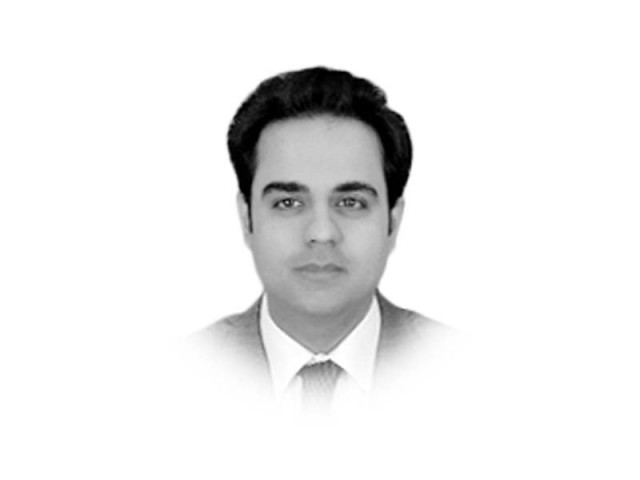The desert storm and the ideological shift
Soon Kingdom may witness abdication of King Salman in favour of his son to further strengthen the succession process

The writer is an entrepreneur and can be reached at faraz999.fc@gmail.com
Others detainees included Prince Waleed bin Talal, a renowned businessman, Bakr bin Laden, Waleed al Ibrahim, Saleh Kamal and the Naval Forces Minister Abdullah al Sultan. This was significant and indicated future changes in the political and economic landscape of the kingdom. Some of the businessmen arrested over charges of corruption might be offered an amnesty package later by paying hefty “fines” for violating laws of the kingdom, which will be used for budgetary expansion. But the same proposition seems difficult for the “political detainees”.
There is little doubt left that the young Crown Prince, Muhammed bin Salman, is making his way up swiftly to the throne to implement his ambitious agenda of transforming the Kingdom according to his own vision in which he views Saudi Arabia as a moderate and innovative state. Soon the Kingdom may witness the abdication of the current King Salman in favour of his son to further strengthen and fortify the succession process under his keen watch.
Historically, the conservative state has never witnessed such a swift and convulsive set of actions in a bid to secure the position of absolute rule. This is indeed miles apart from the traditional method of a family consensus approach of ruling in that country. The current rift between the al Sudairi [Sudeiri brothers], known by the patronymic of the late King Abdul Aziz bin Saud’s wife Hussa bint Ahmad al Sudairi’s sons (the late King Fahd, Princes Sultan, Abdel-Rahman, Nayef, Turki, current King Salman, and Ahmed) and (Sudeiri) grandsons (Muhammad bin Naif deposed crown prince and his cousins) is unprecedented and was unthinkable just a few months ago.
Muhammed bin Salman has announced many positive measures. The recent establishment of a religious body in Madina to vet and certify Hadith and the appointment of erudite and moderate scholars and the termination of thousands of extremist muttawas are daring and positive beginnings.
The crown prince is not only making headway to open up the entertainment sector in Saudi Arabia, he is also encouraging the youth especially women to participate fully in public life and managed to garner support for issuing the royal decree which will allow them to drive cars from summer 2018 onwards. He has also taken steps to motivate them and aid wider participation in more professional, social, economic and sports-related activities in the country. These steps in the ultra-conservative society like Saudi Arabia are stupendous. Only time will determine the efficacy of these measures.
The latest drive of purging the hardline muttawas from the strong religious establishment and replacing them with moderate scholars clearly suggests that Saudi Arabia has finally understood that the ideology of Wahhabism is simply not compatible with the interdependent and progressing world. Hence the crown prince publicly announced plans to go back to the moderate interpretation of Islam which promotes religious harmony and coexistence.
Extremists and hardliners all over the world paradoxically contribute support and legitimacy to one another. When a few weeks ago, while addressing the UN General Assembly Donald Trump threatened to pull out of the Iran nuclear deal, he was, in reality, offering a tight embrace to the clergy in Iran by providing them reason to assert their claims before their domestic audiences of not trusting the US and at the same time weakening the reformists who built the narrative of trust and workable relations with the West and the US.
The perennial distrust, conflict and wrangling between the KSA and Iran emanates from their ideologies.
The ideological shift in Saudi Arabia (if it is true as projected) presents an ideal opportunity for the world and especially Muslim-majority countries like Pakistan and Turkey to play a conciliatory role to prompt both the KSA and Iran to resolve their complex and problematic issues through dialogue. This paradigm shift in Saudi policy also provides the opportunity for the reformists in Iran to start considering the option of dialogue with their arch-foes in the region. Things are currently very complicated between the two countries but when the collective welfare of millions of people is at stake, bold and visionary leaders need to take tough and unpopular decisions by keeping the common benefits of their people in mind.
Published in The Express Tribune, November 19th, 2017.
Like Opinion & Editorial on Facebook, follow @ETOpEd on Twitter to receive all updates on all our daily pieces.













COMMENTS
Comments are moderated and generally will be posted if they are on-topic and not abusive.
For more information, please see our Comments FAQ